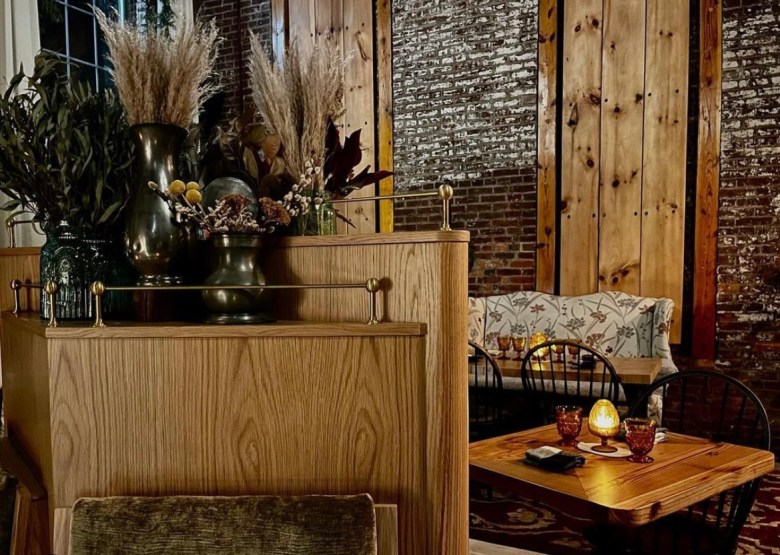
After Woodberry Kitchen was reimagined and reopened as Woodberry Tavern, the restaurant is continuing to serve Chesapeake Bay ingredients with farm-to-table flair but with more of a focus on events.
The Baltimore establishment, which originally opened in 2007, was forced to close operations during the COVID-19 pandemic and primarily became a space for small events. Like many restaurants, the then-Woodberry Kitchen was hit hard during the pandemic.
Once the realities of COVID-19 settled, James Beard Award-winning chef-owner Spike Gjerde knew that if the restaurant wanted to continue business they couldn’t come back the same way it had been in the past.
“I felt for a long time that we needed to do a better job with pay, equity, and parity in this particular business,” Gjerde said.
Woodberry Kitchen, which had a huge team and was very expensive to operate, was inspired to make changes amid the pandemic, Gjerde said.
“A lot of times there’s a huge disparity in restaurants between some front-of-the-house positions and some back-of-the-house positions, and we tried to kind of really level that out as much as we could,” he said.
Renovations to the event space began in the summer of 2022 and the restaurant shifted their emphasis to parties and events. These changes enabled the staff to have a smaller team, allowing livable wages across all positions.
What was once a 120-seat restaurant with a 30-seat event space is now a 30-seat restaurant with a 120-seat event space, Gjerde said.
For years, Woodberry has been the go to location for parties of 30 or less such as wedding rehearsal dinners, Gjerde said. “Now we want to do the whole thing. We want to do the wedding too.”
“We want to let people know that we’ve got this beautiful space with a special setup that’s connected to Woodberry’s history of doing amazing food and beverage,” he added.
Since transitioning from Woodberry Kitchen to Woodberry Tavern guests will see some changes in the menu.
Previously, the restaurant had a built-in masonry oven which was the visual centerpiece of the space and a main principle of the menu. But with that feature gone, “It might imply a more elusive dining experience,” Gjerde said.
“The prior menu was large and offered a lot of different options,” he said. “Now we’re really focusing on a little more structured menu and providing a really focused level of hospitality.
Although the menu has changed, the farm-to-table contributions and commitment to local food sources has not wavered. Woodberry and its affiliate businesses have spent more than $25 million on local growers over their more than 15 years of business.
“On some level we exist to help, to participate in the local food economy to the maximum extent,” Gjerde said.
“That is still 100% what we do and we measure our success in that regard by the dollars that we’re able to return to growers,” he said. “It’s always been one of the things I’m proudest of, that even through the pandemic that was still a focus for us. We saw some growers actually did really well when there were a lot of home deliveries but some growers struggled who had focused on restaurants in the past. But it was really nice to see that the wheels start to turn again and the dollars start to flow back in a meaningful way to growers.”
With the transition to Woodberry Tavern, Gjerde and his team have had to relearn the ropes in some regards.
“I think I found the one thing that’s harder than opening a restaurant, which is reopening a restaurant, because there’s a lot to refigure out,” he said.

